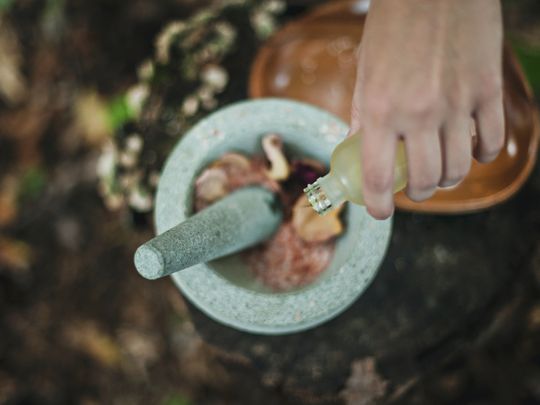
The odds of surviving a visit to the doctor in ancient times were not as solid as they are today.
Click start to play today’s Crossword and name the word used to describe the effectiveness of a medicine, in 5-Across.
Quirky, downright bizarre medical procedures were once considered the norm in places around the world. Here are some that may astonish you:
1. Poo ointment
In ancient Egypt, animal excrement was considered to have healing properties, according to the Ebers Papyrus, a medical papyrus of herbal knowledge dating to 1550 BC. The document outlines how a variety of faeces – from dog to gazelle to donkey – was used to not just “treat” wounds but to keep bad spirits away.
2. Trepaning
Have a migraine? An ancient physician would likely prescribe a nice hole in the head. Drilling an opening into the skull was once considered to be reasonable treatment for pain and neurological issues. The origins of trepanation go back nearly 7,000 years to places like Greece, Africa, and Polynesia, but most shocking is the fact that the practice went on right into the early 1900s.
3. Tapeworm diet
A practice that – to be fair – not all doctors may have prescribed back in the day, the tapeworm diet was hugely popular in the Victorian era. In pursuit of the perfect body, women would consume a tapeworm egg pill. The idea was to eat whatever they liked and to still undergo weight loss, as the worm would consume the majority of their food. Symptoms of this diet were dangerous and painful – malnutrition, abdominal pain, nausea and infection were common.
4. Corpse medicine
From the Roman era to the time of England’s King Charles II in the 1600s, cannibalistic preparations were considered to be restorative and healing. It was commonplace to loot Egyptian tombs so that various parts of their deceased inhabitants could be ground into a fine powder and used as corpse medicine. The most popular treatments involved not just bone, but flesh and blood, too.
5. Mercury elixir
We know today that mercury is highly toxic. The US-based Environmental Protection Agency labels it as a powerful neurotoxin that can cause symptoms like vision loss, impaired hearing, muscle weakness and neuropathy. But in ancient times, from Greece to China, drinking or applying mercury to the skin was a traditional remedy, thought to increase one’s lifespan or cure afflictions. Chinese emperor Qin Shin Huang consumed it regularly in an effort to obtain eternal life, and as expected, died before his time.
What do you think of these ancient “remedies”? Play today’s Crossword and tell us at games@gulfnews.com.




